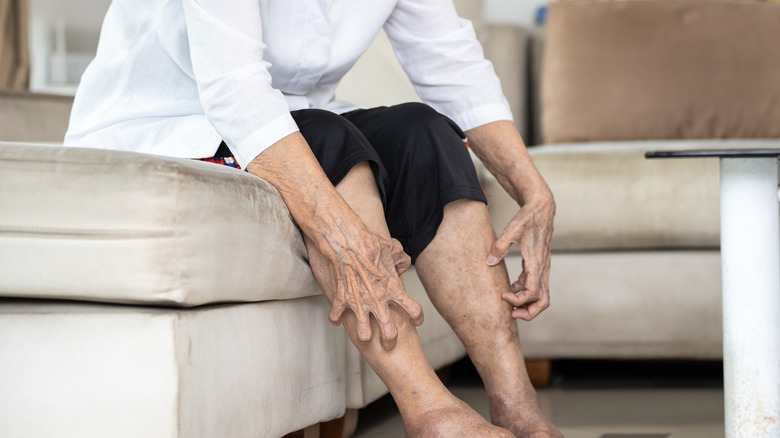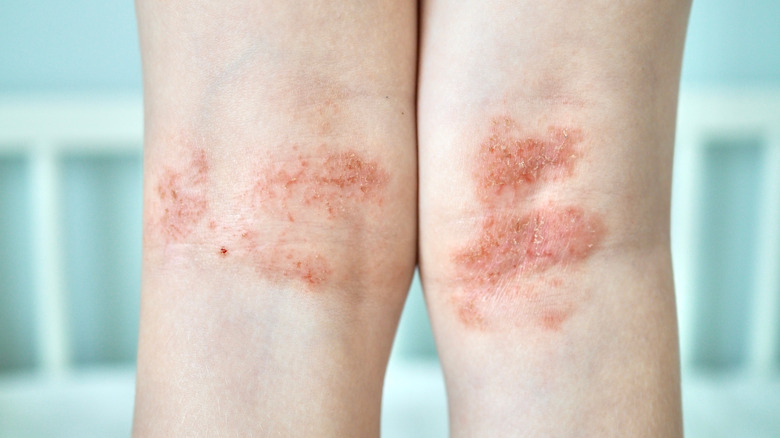What You Need To Know About Cellulitis If You Have Eczema
With the skin being our largest organ, we have to be diligent about taking extra special care of it (via MedlinePlus). Especially, if you have eczema, also known as atopic dermatitis (via Mayo Clinic). When you have eczema, you're more likely to develop skin infections, like cellulitis, which can be serious.
Eczema is a skin condition resulting in dry, itchy skin (via Mayo Clinic). It's a chronic condition that flares periodically, typically appearing on the hands, feet, ankles, wrists, neck, upper chest, and inside the bend of the elbows and knees. The skin may be dry, itchy, bumpy, scaly, or swollen. It usually starts in childhood and continues through adulthood. Nevertheless, you can be diagnosed at any age.
Eczema is the result of a genetic variation that impacts the skin's ability to retain moisture and keep out allergens and bacteria. Those with eczema may be more prone to asthma, hay fever, poor sleep, and skin infections, such as cellulitis.
How cellulitis and eczema are linked
If you have eczema, scratching at the itchy skin can cause your skin to break, which allows bacteria to enter the body (via WebMD). This can cause cellulitis, a skin infection that goes deeper than eczema. Cellulitis often affects the skin and soft tissue beneath it, causing pain, tenderness, and sometimes fever. The skin may swell, turn red, and form blisters or dimpled skin. Cellulitis usually appears on the lower legs, but could also develop on the arms or face.
Cellulitis and eczema are similar skin conditions, but they have distinctions. Irritable or scaly skin is caused by eczema, while cellulitis will make your skin even and bright. Both skin conditions cause blisters, but they'll vary in size. Eczema will leave behind small blisters, compared to blisters with cellulitis will be large. You're also not likely to develop a fever with eczema, but fever is common in cellulitis. As far as pain goes, cellulitis can make the skin feel sensitive. On the other hand, eczema generally won't. Location is also an identifier — cellulitis is usually on the lower legs, however, eczema can show up anywhere on the body (per WedMD).
You're more likely to get cellulitis if you have eczema. In fact, eczema treatments can make cellulitis worse. All in all, it's always best to speak to your doctor if you notice symptoms of cellulitis, as treatment is important before it worsens.


